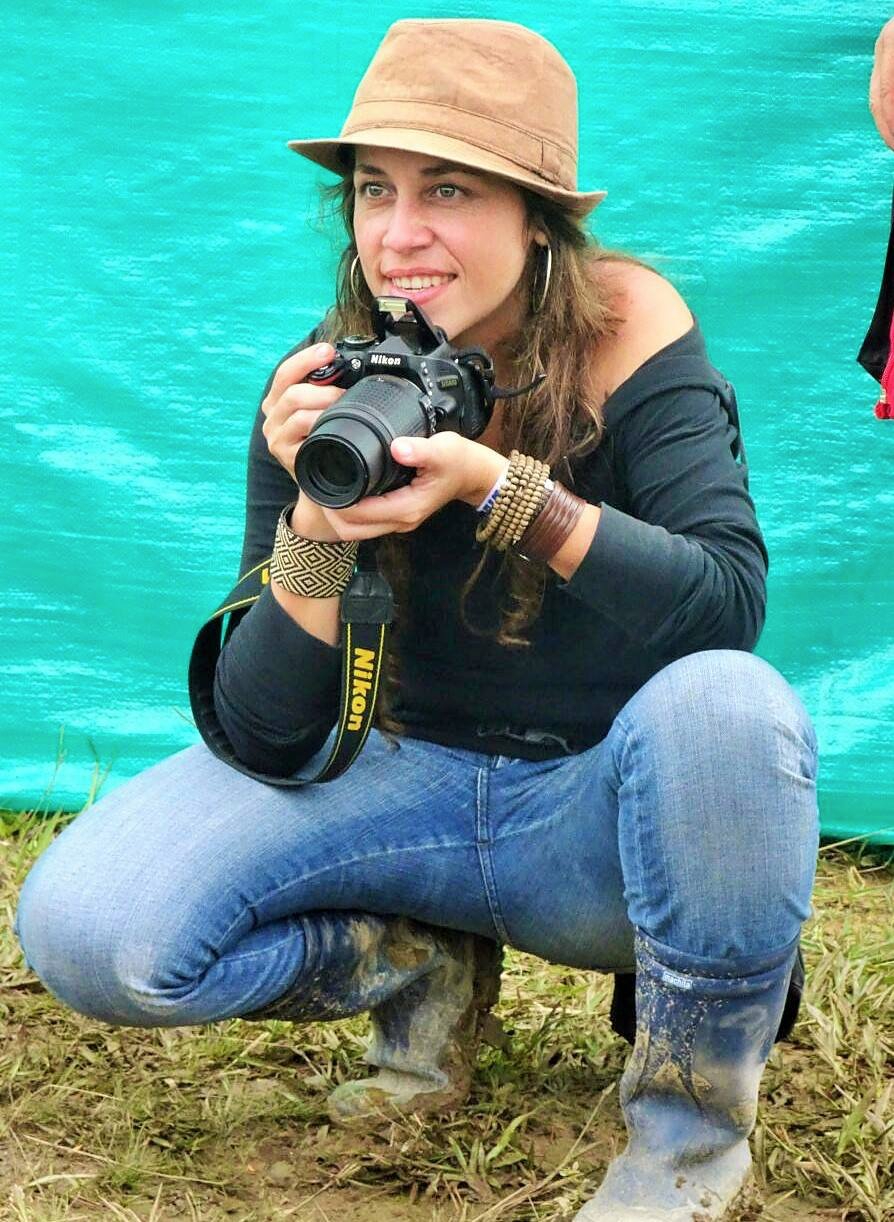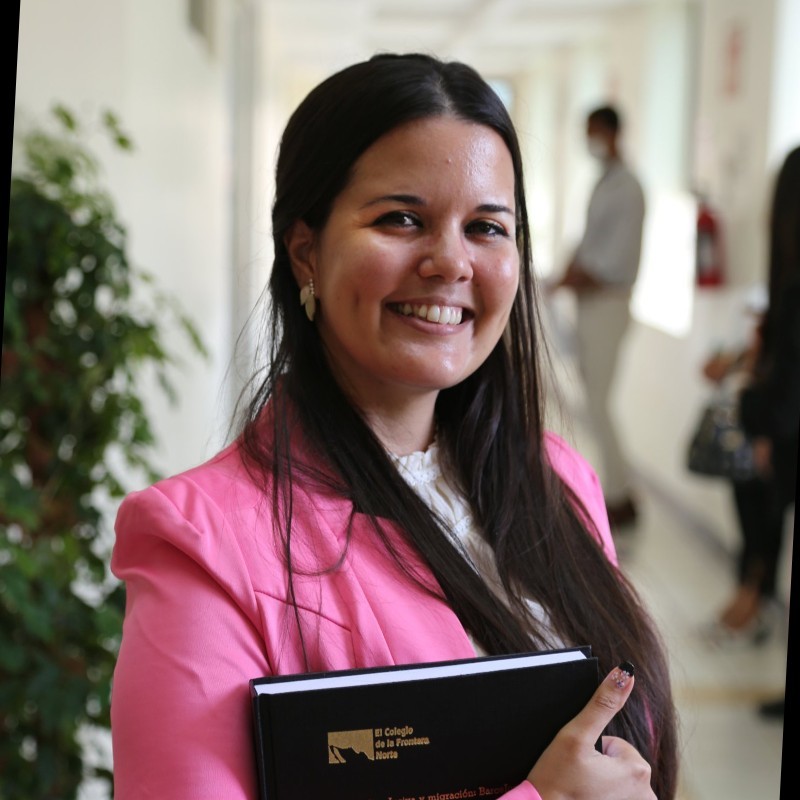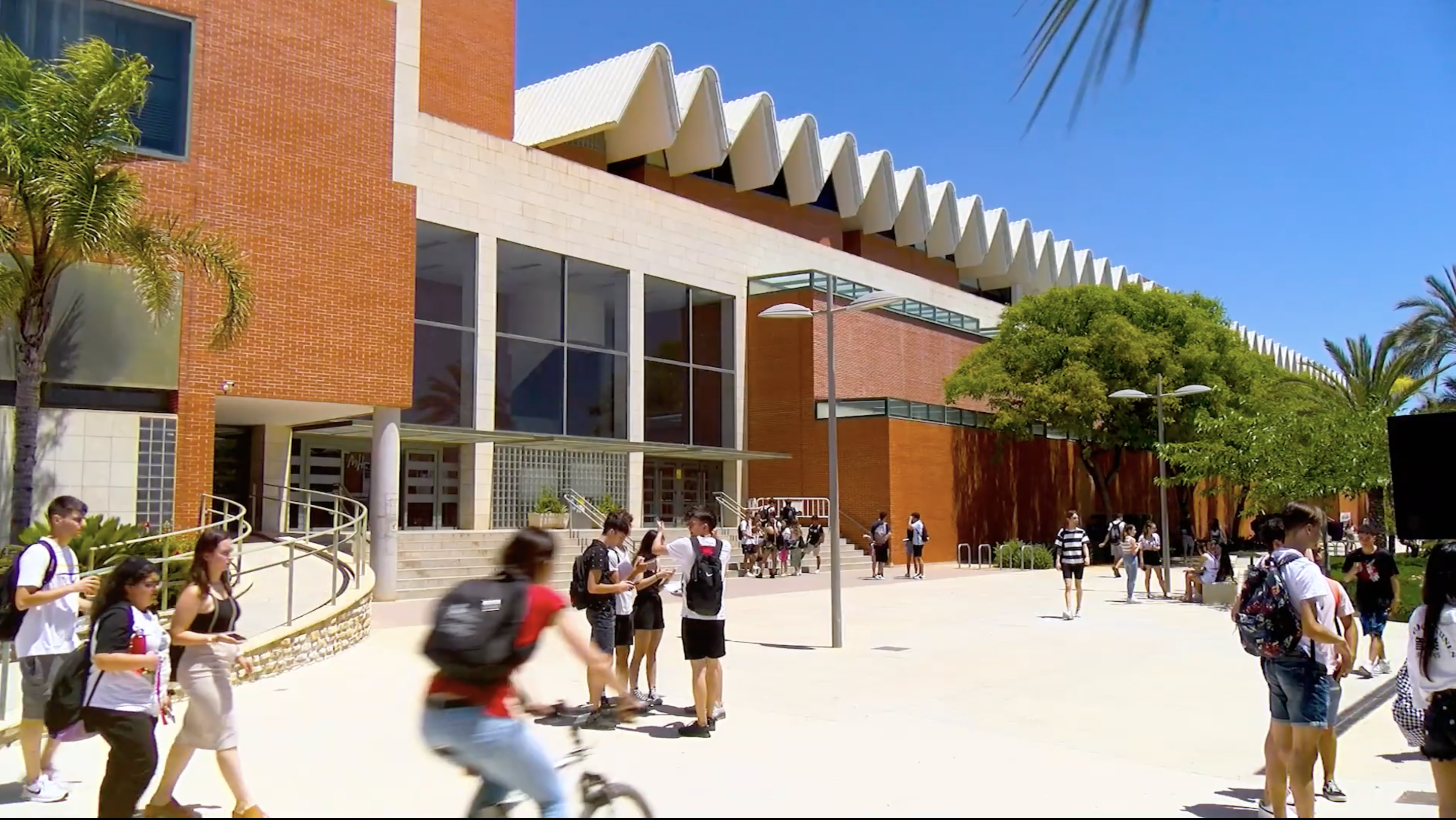Colombian journalist Andrea Aldana arrived in Spain in 2021 thanks to an aid program of the organization Reporters Without Borders (RSF) for journalists in dangerous situations. This is the third time the journalist has had to leave her country due to threats, persecution and surveillance, mainly by people linked to those in power, because of her journalistic work.
Although Aldana is safe in Spain and upon her arrival she received support to live on for some months, her asylum process was caught up in long bureaucratic processes that kept her migratory situation in suspense for almost two years. Just three months ago she received her work permit to be able to practice her career in that country.
"I am very grateful to RSF because RSF takes you out of your country and instantly saves your life," the journalist told LatAm Journalism Review (LJR). "But those are institutions that don't really have money. I know them, they don't have a lot of money, so they can't take care of all the journalists they help to get out of their countries. And when you arrive here and apply for asylum, you are left in the hands of the bureaucratic processes of immigration. And I don't have any guarantees here.”
Aldana and her Cuban colleague Loraine Morales are the first two beneficiaries of the Elche, Safe Space for Press Freedom program, promoted by RSF Spain, the Elche City Council and the Miguel Hernández University (UMH, by its Spanish acronym). The program will provide Aldana with a respite from the personal and professional situation she has experienced over the past two years.

Colombian journalist Andrea Aldana has been forced three times to leave her country due to threats and persecution. (Photo: Courtesy)
The initiative consists of hosting at-risk journalists for four months and offering them a space to continue their journalistic work within the UMH Elche campus. In addition, the selected journalists will give workshops on topics related to their professional experience for students of Journalism and Audiovisual Communication.
"The main objective is to provide, as an academic internship, some support for journalists who are going through difficult situations due to threat, risk, persecution or aggressions," Alfonso Bauluz, president of RSF Spain, told LJR. "To provide journalists with new professional tools and skills so that, in addition to their work as journalists, they can also work as researchers, academics, professors or lecturers. [The intent is to] broaden the range of their professional options, especially for the larger number of journalists who are forced to leave their countries."
Aldana and Morales were chosen, among other reasons, for their professional experience in aspects of journalism that UMH seeks to strengthen in its curricula, Bauluz said. Aldana's outstanding experience in covering armed conflict, drug trafficking and human rights, and Morales' specialization in migration issues made them stand out from the rest of the applicants.
Unlike the Temporary Shelter Program for Persecuted Journalists in Latin America carried out by RSF Spain and the Madrid City Council since 2018, Elche, Safe Space will last for four months, from Sept. 1 to Dec. 31, 2023. It will also offer both journalists accommodation on the UMH campus in Elche, one meal a day and a stipend for the duration of the program. RSF will cover travel expenses, while the Elche City Council will provide support staff and cover the costs of administering the initiative.
"We think of it as a pilot project," Bauluz said. "We are convinced that it’s going to be successful and we know, because of the high demand that exists, because of the unfortunate situation in which more and more journalists are being harassed or forced to leave their country, that it is increasingly necessary to offer these alternatives, at least of a temporary nature, but which also allow them to round up their skills and the supply of professional options to which they can turn."
Among the main expectations of both Aldana and Morales for the program is to give workshops to students on how journalism is done in Latin America in the midst of hostile environments. The Colombian journalist proposed to conduct workshops on skills including how to cover armed conflicts, how to investigate corruption and mafias, and how to track money laundering and shell companies.
Aldana fled her country precisely because of journalistic investigations into these issues. In 2016, she earned the enmity of the Prosecutor General's Office in Medellín, Colombia, when she published an investigation that uncovered links to drug trafficking of its director, who was forced to resign from his post. In 2020, the journalist revealed an alleged arms trafficking network involving members of the Colombian Army. And that same year, one of her investigations uncovered a series of cases of sexual abuse of Indigenous girls allegedly perpetrated by the military.
"I hope to teach that expertise in investigative journalism, but also how one relates to sources during war, how you reach an illegally armed actor. Or, in the case of women, how to do journalism in contexts where there are armed men, when you are going to be sexualized from the start," Aldana said. "Those realities do not happen in Spain, but they do in Mexico, Brazil and Colombia. And if at some point they [students] can be correspondents or war journalists, they need to be knowledgeable about it."
For her part, Morales intends to share her training in migration issues. The journalist, who has a Master's degree in Population Studies and a PhD in Migration Studies, has been working since 2022 in the independent digital news outlet elTOQUE, where she coordinates the community management of the project "To migrate: A life and death decision," a special that compiles the identities and stories of Cuban migrants who did not make it to the United States.
Morales plans to take this project to UMH classrooms to exemplify how migration can be approached from the perspective of data journalism, while at the same time providing a social service to the population.
"My proposals talk about how to better communicate demographic issues, which are usually addressed with many biases in the media," Morales told LJR. "Sometimes migration is usually looked at from a purely statistical point of view, or everything related to the factors of attraction and expulsion of migratory flows within the region is homogenized, when each context is very particular and has very particular elements.”
For Morales, who lives in exile in Tijuana, Mexico, and has experienced the migration phenomenon firsthand, the media also tends to treat the migration issue with a lot of stigma, so in her university workshops she will try to sensitize students on the subject.
"Sometimes we don't realize that we are creating stereotypes within the audiences about the migrant population, which are very vulnerable populations, not only in their territory of origin, but also during the journey and once they arrive at the destination," she said. "And the approach in statistical terms is usually quite disastrous."

Cuban journalist Loraine Morales lives in exile in Tijuana, Mexico, where she works for the Cuban digital media elTOQUE. (Photo: Courtesy)
For both selected candidates, it is important that students learn to do journalism that questions and confronts power, and to manage the consequences that this could have. While Aldana has been the victim of persecution for investigations that expose vices of powerful people, Morales and her team at elTOQUE have been targeted by the Cuban regime for practicing independent journalism, to the extent that most of the newsroom operates from outside the island.
Morales said that although in her journalism studies at the Hermanos Saiz Montes de Oca University in Pinar del Río, Cuba, she was taught that journalists should question, in practice the authoritarianism and censorship of the Cuban State make that impossible. So journalists often end up doing more of a job of dissemination and reproduction, than journalism.
However, there are aspects of journalism in Cuba that Morales would like to share with her Spanish students.
"From my four years of work as a journalist in Cuba, I would take away being close to people, so that they see themselves represented or at least that [they feel that] someone cared about their problem. I think that's the most important thing you can't lose, the humanism within the work," she said. “Behind every statistic or every figure there are stories that are reflected, people who are benefited or affected by a phenomenon that goes beyond what the page shows you.”
For Aldana, despite the fact that Spain has a different reality from Latin America, the country is not exempt from abuses of power that aspiring journalists must learn to cover and expose.
"My side in journalism is always with the dispossessed, therefore the powers here in Spain, in Colombia, in Mexico can be the Army, a president, a minister or a multinational company," she said. "It’s clear to me that the journalism I want to do is judicial journalism, investigative journalism against power."
The interest and teaching experience of both selectees was also an important factor in their selection for Elche, Safe Space. Both Aldana and Morales have taught journalism in some capacity and that is a facet of their careers that they would like to strengthen.
Aldana has offered free workshops in alliance with news outlets such as Universo Centro magazine in Medellín, for which she also writes. She has also been invited to give workshops at universities in Antioquia and Bogotá.
"We cannot continue to think that journalism is [just] done at your desk, because it is not so. I learned to be a reporter by sticking to the professors who were doing journalism on the street all the time," Aldana said. “I want to somehow give back all the time and space these busy journalists gave me, who were generous enough to educate me. I want to do the same for those who come after me.”
The journalist said she also wants female students to see her as a role model in that it’s possible for female journalists to cover armed conflicts, even though this is a subject mostly covered by men.
For her part, Morales gave workshops in Cuban institutions and taught audiovisual production at the University of California, Davis, as part of the digital storytelling project "Humanizing Deportation," on the human impact of border and immigration controls between the United States and Mexico. However, her dream, she said, is to become a full-time academic in order to teach and do research at a university.
"My greatest expectations are to participate in the teaching field. I hope to continue learning from the experience of great professionals such as those on the faculty at the University of Elche," she said. "[I wish] to get feedback on how teaching experiences are in other countries, such as Spain. [...] It also implies the responsibility of making known such a complex context as the Cuban one, which many people have idealized."

The selected journalists will have a workspace on the campus of the Miguel Hernández University in Elche, Spain, where they will join the academic life for four months. (Photo: Screenshot from YouTube)
Bauluz, who in addition to his work as a journalist and at RSF is also an associate professor in the Department of Journalism and Global Communication at the Complutense University of Madrid, agrees that teaching journalism improves when professors are active professionals. For this reason, Elche, Safe Space will seek to select journalists with profiles like those of Aldana and Morales for future editions to enrich education at UMH.
"The students appreciate it and are grateful for it. Theoretical classes are fine, they are necessary, but the freshness that comes from a knowledge of reality, of how journalism works at all times, I think that students deserve to know it from the professionals themselves," he said.
Elche, Safe Space is expected to continue every year, according to the journalist. Both he and the selected journalists hope this first edition meets expectations, so it can pave the way for the program to be replicated in other institutions in Spain.
With more and more journalists in Latin America being threatened and persecuted for their work by organized crime or authoritarian regimes, such programs are more necessary than ever, Bauluz said.
"We would like more universities in other cities to join this project. But, of course, for this we need local partners in each city so this program can go ahead and diversify in different parts of Spain," he said.